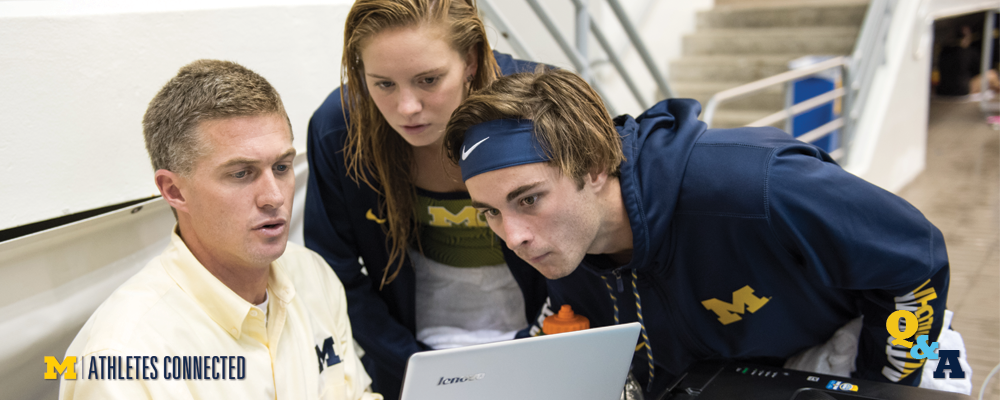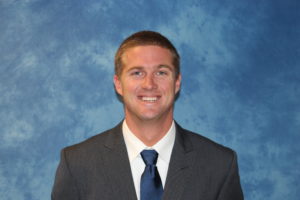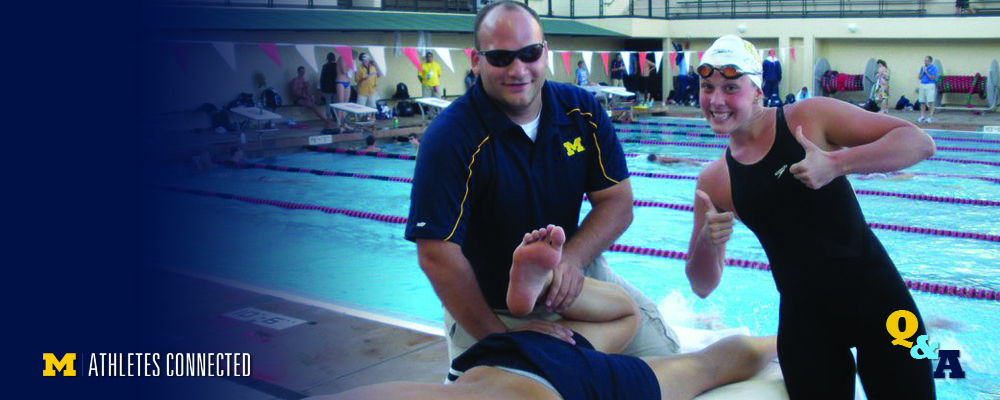
The Athletes Connected program recognizes the many different entities that factor into student-athlete mental health. As part of our Q&A series, Athletes Connected will share how coaches, administrators, athletic trainers and other athletic staff approach their roles in the lives of student-athlete health.
To continue the series, Athletes Connected caught up with senior associate athletic trainer Jeremy Marra, who currently works with the men’s lacrosse program. [See our previous Q&A with U-M head diving coach Mike Hilde]
Q: What role do you see yourself playing in the lives of the athletes you work with?
A: In college, we are building a performance based mindset. Our goal is to help improve athletic performance, help athletes stay on the field, reach their academic and athletic goals, and reach their highest potential both during and after their collegiate career.
I see my role as an athletic trainer as being the point of contact for all health-related services, whether that be athletic training, nutrition, counseling, performance, exercise science, or physicians. We are the ones most integrated within the team. People look to athletic trainers to bridge the gap between injuries and illnesses and our health and welfare services. From there we really take on the individual care of musculoskeletal injury and health-related issues, both through rehabilitative services and referrals. We are fortunate to have the staff and resources that we do and can help student-athletes navigate the health system.
There is no shame in talking about anything. That is the biggest piece…There is no shame in bringing it up or asking the question.
Q: You spend a lot of time with many of your student athletes, how do you see mental health affecting them both personally and athletically?
A: Because we have the opportunity to spend a lot of time with our student-athletes, athletic trainers get to know them in a different way than other support staff. It is the athletic trainers job to develop a professional, trusting relationship with our student-athletes. Because of these relationships, student-athletes may feel more comfortable sharing personal information with their athletic trainer, some of which may include mental health concerns.. I believe it is important to help them figure out how to share these same challenges with their coaches. It is important that when they are ready to share those struggles with their coach, that they feel comfortable doing so. If the coach doesn’t understand where an athlete is coming from, how can they coach them effectively, or how can they be a mentor to them? We also want to make sure student athletes are prepared to have those communication skills for when they leave Michigan and need to speak with their boss, a coworker, or partner.
Another advantage of our athletic training role is that we are able to see individuals over time. Our relationship grows over the four to five years we know a student athlete, and can sometimes notice when something isn’t quite right. If I am doing my job as an athletic trainer, I’m not only physically helping to heal them, but also serving as a sounding board and assisting with proper referral so they can get the support they need. This skill does not just come naturally; every athlete and athletic trainer does not have a trusting relationship.Some, and maybe this is the definition of success in our field, are able to develop those interpersonal relationships that have a healthy balance of professional respect and trust. If we can develop a healthy relationship with our athletes, they are more comfortable openly discussing mental health concerns. Athletic trainers can then be their advocate to make sure that they don’t suffer in silence and know there are resources available.
Q: Do you think there is still a stigma around mental health and seeking help? If so, what do you think will help student athletes feel more comfortable seeking help?
A: Absolutely. We have done a great job as a department to try to break down the negative stigma of mental health over the past few years. I think Athletes Connected is an unparalleled program. I also believe in getting in front of the student athletes and making sure that they know all of the support staff. Putting things out in their face to normalize some of these feelings that everyone goes through is important. I still see the biggest challenge in this area with some of the male, testosterone-driven sports, where stigma prevents athletes from reaching out. I think that stigma still exists, that having a mental health concern makes you weak or makes you different from everyone else. You can see when someone has a musculoskeletal injury, but you can’t see when someone is struggling with mental illness. Even if an athlete is not struggling with mental illness but simply wants to improve their performance, I still think they don’t feel like they can say “yeah, I talk to Emily once a month about performance enhancement and how to make me mentally stronger. Why wouldn’t I do that?” We haven’t broken that barrier yet.
We are working on it, and the more athletes, especially men, that can come forward and really talk about their struggles or the services that they utilized to get them to where they are, will help. I think we still have a long way to go but have made significant strides in the last few years.
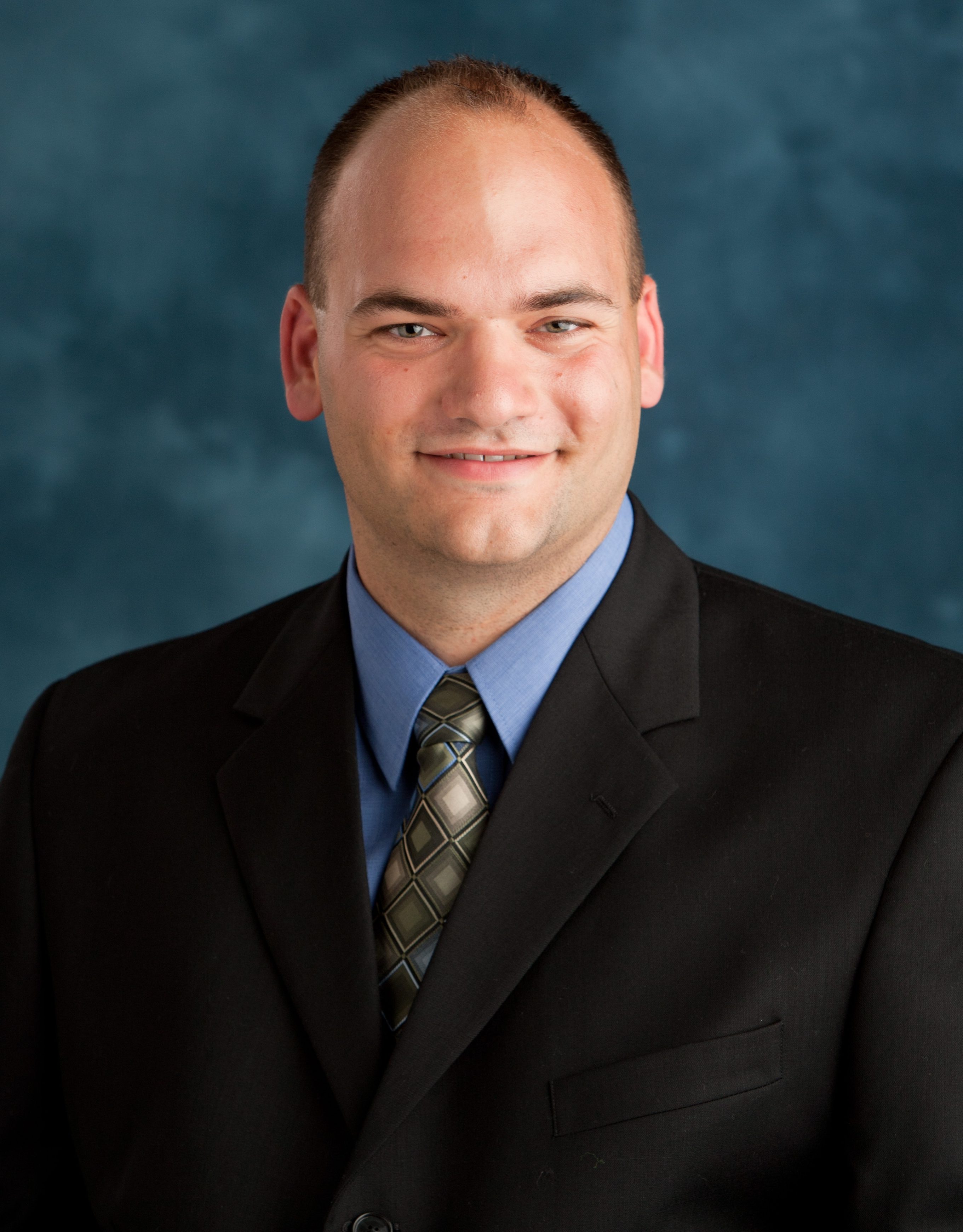 Q: How do you see the medical team as an integrated unit benefiting student athletes’ overall health and wellness, in particular mental health?
Q: How do you see the medical team as an integrated unit benefiting student athletes’ overall health and wellness, in particular mental health?
I talk with recruits about the performance team quite a bit. I talk about the athletic trainers, how we are the front line people there at every practice, we are traveling to all the competitions, we probably develop a relationship with the parents. Once I discuss our role with the student athletes and team, I then talk about being a liaison to the other support areas: nutrition, PPAC, academics, medical staff, etc. That is how we are able to demonstrate that we are a team. These resources are not only available if there is something wrong but also to help you perform at your highest level.
Any time an injury occurs, it is never just one of the team members involved. For example, with an ACL tear, I am the first one to assess the student athlete and refer to a team physician. Once the doctor diagnoses it as an ACL tear, we prep for surgery. Part of that conversation in prepping for surgery is talking about the post-operative care they are going to receive, which will be at least a 6-month rehabilitative process. We’ll then talk with our dietitian to discuss fueling changes pre and post-surgery. The student athlete will then meet with academics and get their schedules in order. We also want to make sure their professors know that they will have surgery and miss some class. There is also the psychological component and we almost always refer someone for at least one appointment. It is the athletics trainer, the physicians, nutrition, academics, psychology/counseling, and strength and conditioning all working together to provide the best care for the student athletes in conjunction with our coaches.
Q: What is a common misconception about student athlete mental health, that athletes may think exists?
A: A lot of athletes believe it is a weakness if you can’t perform on the field due to psychological barriers. They believe you just need to ‘Man Up’, handle it, and get over it. This is such a misconception. We should have conversations with student athletes who have identified histories of mental health concerns or who have experience working with sports psychologists or social workers for sport performance. However, I still believe there is the stigma that people who struggle with mental illness are weak. I see it more with male sports than female sports. This is where coaches can be impactful. It is so important to have our coaches be spokespeople for this initiative and create a more inclusive environment by normalizing concerns and help facilitate resources for mental health.
Q: What is something you would like athletes to know about mental health from an athletic trainer’s perspective?
A: There is no shame in talking about anything. That is the biggest piece. Whether you did bad on a test, are stressed about your significant other, having suicidal thoughts, or simply looking for a competitive mental edge in sport and want to talk. There is no shame in bringing it up or asking the question. We try to instill the idea in our young athletic trainers that they really need to be the student athletes’ advocate. Our athletes cannot look at us as a coach. We work closely with our coaching staff, but we do not report to the coach. We report through the Student Athlete Health and Welfare team and our team physicians. It is my hope that no student athlete feels that they cannot talk to their athletic trainer.
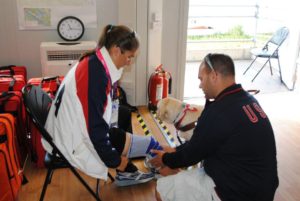 Q: For athletic departments who may not have the resources we have here what would you recommend athletic departments do to support athletic trainers and their roles as gatekeepers? What would you recommend athletic trainers do to find resources to help student athletes?
Q: For athletic departments who may not have the resources we have here what would you recommend athletic departments do to support athletic trainers and their roles as gatekeepers? What would you recommend athletic trainers do to find resources to help student athletes?
A: The NCAA has a great mental health website. In the last few years they have created documents such as the Mental Health Best Practices as well as Mind, Body, Sport for universities to use. Anyone has access to these documents. It is a great resource for athletic trainers to reference. The Athletes Connected website is another quick resource every support staff member should have readily accessible.
All athletic trainers are trained in base level triage of psychological disorders as part of our entry level training. Being able to recall this information is crucial, especially if mental health resources are not readily available. However, most of our baseline training relates to psychological issues related to an injury and coping with a physical injury.
The first time I lost an athlete to suicide I had to really think about how I was going to handle the situation; how I was going to respond. What was my role? I still had to be a medical professional, ensuring others affected by the tragedy had appropriate support, as well as figure out how to cope myself. It is our job as athletic trainers to identify those resources and have an emergency action plan in place.. If an athletic trainer is working at a school that has not identified support for their student athletes or developed policies and procedures related to mental health, then that athletic trainer should take the initiative. Every school and university has some resource for mental health, for example, counseling and psychological services. Understand who you can go to and then build relationships with them. Go and meet with area social workers and psychologists. Work with your team physician on appropriate referrals and psychiatry. Identify a referral pattern and work with your local community, with the approval of your athletic director. As the gatekeepers, we are our athletes best advocates.
How we are helping our student athletes when they leave our university? While in school we are supporting them to function at a high athletic level and be a champion in the classroom, but when they leave how are they taking care of themselves? Smaller institutions can prepare student athletes by teaching them about the importance of mental health care and direct them to community resources. My hope is that athletic departments don’t have to wait for the worst thing to happen in order to make more resources available. We have come a long way from the past, but unfortunately it took a death by suicide to catapult mental health to the spotlight. Every athletic trainer works under a physician. Use that physician and their contacts to get the help that your student athletes need.
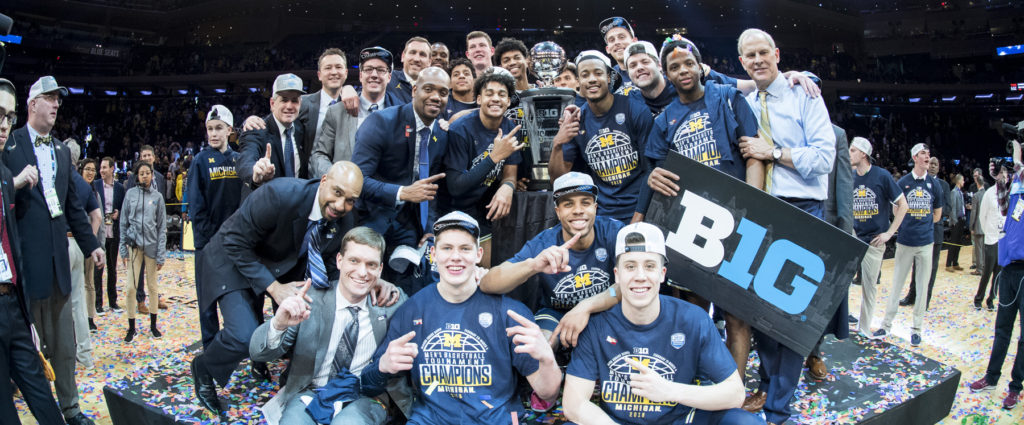
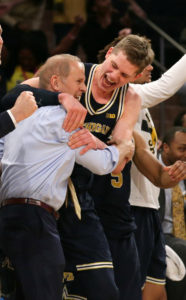 “We recommend our student-athletes speak with our counselors,” added Beilein. “We introduce our counseling staff to our players in one of our first team meetings of the year.”
“We recommend our student-athletes speak with our counselors,” added Beilein. “We introduce our counseling staff to our players in one of our first team meetings of the year.”

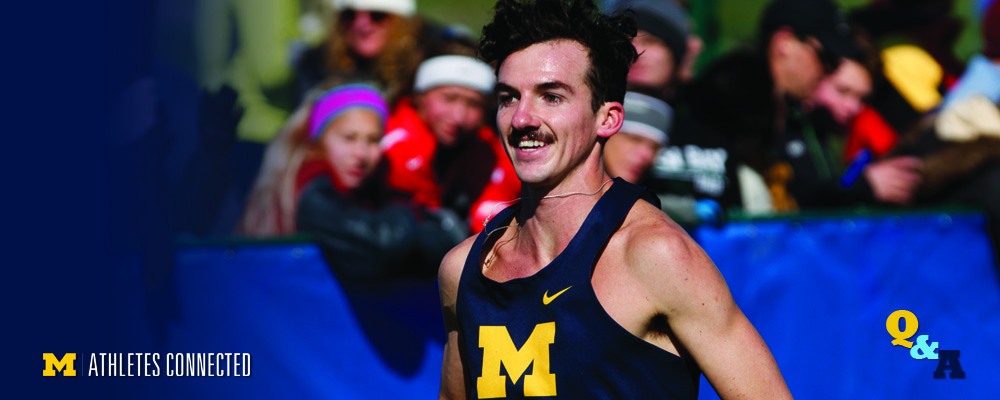
 Q: Have you seen a that shift in the way mental health is talked about among student-athletes?
Q: Have you seen a that shift in the way mental health is talked about among student-athletes? 
 By
By 


 Q: How do you see the medical team as an integrated unit benefiting student athletes’ overall health and wellness, in particular mental health?
Q: How do you see the medical team as an integrated unit benefiting student athletes’ overall health and wellness, in particular mental health? Q: For athletic departments who may not have the resources we have here what would you recommend athletic departments do to support athletic trainers and their roles as gatekeepers? What would you recommend athletic trainers do to find resources to help student athletes?
Q: For athletic departments who may not have the resources we have here what would you recommend athletic departments do to support athletic trainers and their roles as gatekeepers? What would you recommend athletic trainers do to find resources to help student athletes?
